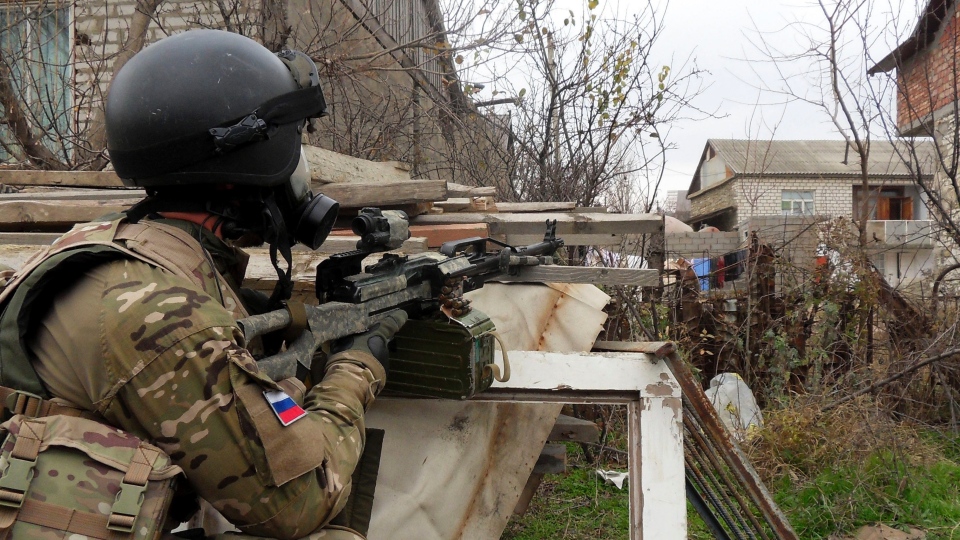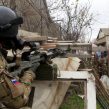
Russian Expert Foresees the North Caucasus as an Untenable Colonial Domain
Publication: Eurasia Daily Monitor Volume: 10 Issue: 104
By:

On May 29, the respected Russian newspaper Vedomosti published an analytical article on the situation in the North Caucasus. Expressing a view rarely articulated by Russian experts, he described the processes in the region as “the continuation of the disintegration of the USSR” and “anticolonial.” The author of the analysis, Denis Sokolov, the head of the Center for Socio-Economic Research of Regions, considers several dimensions of the diverging paths of what he calls the “conditionally Russians” and the “conditionally non-Russians.” The expert vividly portrays the competition of the Russian empire with the growing national consciousness of the North Caucasians. “Conditional Russians continue to live in the dead USSR, which is connected to a respirator under the names ‘Rosneft’ and ‘Gazprom,’ propped up by state rituals and the security services. Conditional non-Russians regard the disintegrating empire as the source of resources and pursue their private and group interests,” Sokolov writes.
He observed that nationalist rhetoric only disguises a “civilizational divide” between ethnic Russians and the Caucasians. Russians complain that Russian taxpayers “feed the non-Russians all their lives,” and they portray the non-Russians as “uncivilized.” The non-Russians respond with stories from the past about how the Russian and Soviet empires were destroying their lives and their livelihoods. In the expert’s words: “This anticolonial rhetoric firmly ties the process of the dismantling of the USSR as a totalitarian state with the process of the destruction of the empire, creating images of enemies and mobilizing ethnic and religious groups” (https://www.vedomosti.ru/opinion/news/12528091/postkolhoznoe_obschestvo#ixzz2UzfScQHs).
Major Russian media outlets normally avoid describing the North Caucasus explicitly as Russia’s colonial domain. Russian authors usually regard the region as Russia’s frontier, which is vital for the country’s survival even though it is burdensome to sustain materially and hard to govern. Vedomosti’s bold take on the North Caucasian realities apparently reflects a more realistic view of the region’s transformation, as it further de-Sovietizes and market and demographic processes become more evident. As the Russian state retreats from spheres in which it can no longer hold ground, the North Caucasians appear to be better suited to fill in the vacuum. “The natives of the [North] Caucasian republics are used to making do without the state’s care and official salaries; they are prepared to pay for official services, they are ready to live in poor living conditions and do not aspire to a share in the resources of the Soviet legacy” (https://www.vedomosti.ru/opinion/news/12528091/postkolhoznoe_obschestvo#ixzz2UzfScQHs).
Territorial losses and gains comprise an important dimension of the conflict between the ethnic Russians, who hold onto the dead Soviet Union or, in other words, put their faith in an omnipotent, paternalistic state, and the North Caucasians, who rely on the grassroots organization mechanism that is the network of jamaats. According to Alexander Panin, a geographer from Stavropol University, the border between the “Russians” and “non-Russians” is moving in the North Caucasus from the southeast to the northwest at an average speed of 10 kilometers per year. The southeast is represented by Dagestan and the northwest stands for Stavropol region. Russian agrarian holdings have started buying up the region’s lands, but they mainly target ethnic Russian farmers who, unlike the North Caucasians, do not have the supporting network of their ethnic kin. So big Russian companies reportedly are further contributing to the worsening lot of ordinary Russians in the area (https://www.vedomosti.ru/opinion/news/12528091/postkolhoznoe_obschestvo#ixzz2UzfScQHs).
Meanwhile, in May, the government of Stavropol region created a special position of the minister for the socio-economic development of the eastern districts. Quite tellingly, the former leader of the Russian nationalist organization Congress of Russian Communities, 60-year-old Alexander Korobeinikov, was appointed to the post. In 2011, the regional government adopted a grandiose program for developing enormous industrial zones and establishing special economic territories that would attract private investors to the eastern districts of Stavropol region. The program predictably did not work, as the authorities tried to turn an ostensibly agrarian area into an industrial zone with little consideration for market forces and shrinking government resources. As the government’s economic development plans failed, the next step was to resettle the so-called Semirechensk Cossacks from the border area between Kazakhstan and Kyrgyzstan in the eastern districts of Stavropol region. In April, the first 18 individuals arrived in Stavropol, but most of them turned around and left within days as there was no housing, work or even registration available for them (https://kavpolit.com/posemu-begut-russkie/).
Strikingly, ethnic Russians who immigrated to the Russian Federation from a foreign country and lack Russian citizenship appear to be much more welcome in Stavropol region than ethnic North Caucasians who formally are Russian citizens. Although the economic development of the eastern areas of Stavropol region is regarded as a panacea for reclaiming this territory for ethnic Russians and the Russian state, it is unclear how the authorities plan to prevent the North Caucasians from reaping the benefits of developing this territory economically. The logic of this struggle is to thwart the encroachment of ethnic non-Russians who are still Russian citizens on what is considered to be purely ethnic Russian land. This is virtually impossible without establishing greater border barriers and further alienating the North Caucasus from the rest of Russia. Russian experts appear to be increasingly inclined to realize that the conflict between the North Caucasians and Russians is so deeply ingrained that it cannot be solved without completely splitting the two sides into separate states.




